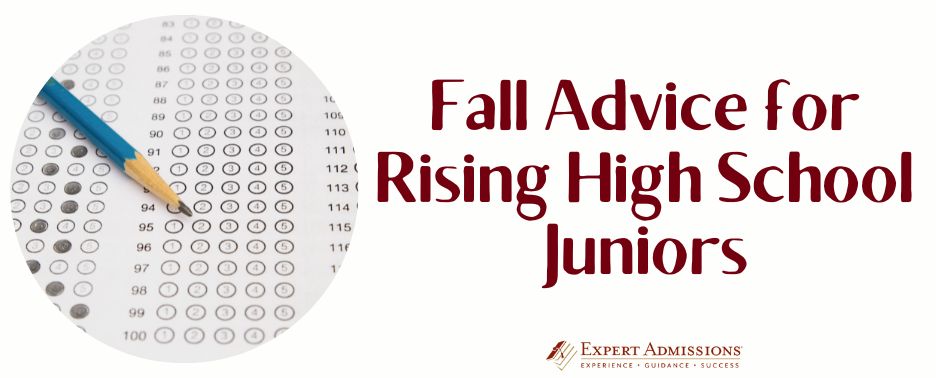
For most high schoolers, 11th grade is crucial. Junior year can be a pivotal moment in your journey toward applying to college and in making a difference in the strength of your college applications. Here are some suggestions to make the most of this year and stay on track to submit your best possible materials next year.
Finalize your course schedule.
Your high school curriculum is one of the most important components of your college application. Make sure you’re signed up for a good mix of classes that includes at least the core subject areas—math, science, English, social studies, and a foreign language—and use elective courses to explore topics that excite you. This way, you can take the required courses for college while discovering possible new interests. You should push yourself to take a rigorous course load while maintaining strong grades.
Be thoughtful about extracurricular activities.
Junior year is prime time to hone your involvement in activities that are important to you. If you’ve been participating in something for a while already (a sports team, a school club, band, theater, etc.) plan on staying consistent with those activities in your junior year. You might want to seek leadership opportunities within the organizations you’re a member of or take on other responsibilities within those groups if you have the time. Even without being the founder or president, you can hone your leadership skills through positions such as event planner or treasurer—or even just by taking initiative and making an impact.
If there’s a new activity you’re genuinely excited about, jump in! It’s important to strike a balance between the activities you’ve been committed to for years and the ones you want to try as you learn more about what matters to you.
Schedule a meeting with your school counselor.
Your high school college or guidance counselor is a great resource for advice and keeping you on track. Most colleges will also ask for a counselor recommendation (aka “The School Report”), so it’s important that your counselor knows you and what you want out of your college experience.
Discuss your goals with them and let them know what activities you’re involved in. Ask if they have any questionnaires or surveys that you can fill out; these will help your counselor get to know you and also help you reflect on your own strengths and interests.
Start your college search in earnest.
Your junior year is the time to start thinking about which colleges and universities might be the best fit for you. You’ll want to consider all aspects of the college experience and figure out what’s most important to you, from the size and location of the school to the academic programs offered and the all-important “vibe” of the campus. Read our guide on college fit to start thinking about what matters to you in a college.
Attend college fairs in the fall, whether virtually or in person, to start learning about different schools, programs, and opportunities. Some colleges may send representatives to your high school. It’s a great opportunity to ask questions and show your interest in a school.
Tour colleges.
Spring break of junior year is the ideal time for campus visits. It’s important to tour schools so that you can get a sense of what life might be like as a student there for four important years of your life. A college might look great on the website and in guidebooks, and you may have heard great things from your friends, but you might feel differently when you get there and attend an information session! Use the fall semester to make a preliminary list of campuses you want to visit so that you can stay organized. And don’t forget to write down a list of questions to ask both students and admissions officers once you’re there.
Create a standardized testing plan.
Even though many colleges and universities are test-optional now, submitting scores at the high end of a school’s range can support your applications. Many students take their first standardized tests in the winter or spring of junior year, so make use of the fall as time to study and prepare. If you haven’t already determined which standardized test you want to take, start with our guide to the SAT and ACT to see which test fits your style.
Junior year is also the time to take initiative. If there’s an activity you’re interested in, but your school doesn’t have a relevant club, start one. Take charge and find ways to make an impact in your various communities while staying on top of your schoolwork and maintaining good grades. All of this may feel like a lot but taking some time to make a plan for your courses, test strategy, activities, and college visions will set you up for success when next year rolls around.
Leave a Reply